5 Things You Need (No Purchase Required) To Go Zero Waste
I believe that less waste is firmly linked to less stuff. Yes, I do have a bunch of reusables, and yes I use them and find them useful. But the focus of the zero waste conversation doesn’t need to be around “stuff”.
Rather than talk about the things we can buy to reduce our waste, I wanted to talk about the things we can do, and the ways that we can change our thinking.
Because we can have all the zero waste reusables in the world, but without the right attitude and mindset we’re going to end up frustrated, defeated… and those reusables will end up languishing on a shelf.
Instead of creating another one of those “5 Things You Can Buy” posts, I thought I’d create a “5 Things You Can Be” post for going plastic-free or zero waste.
A little encouragement, with no purchase required.
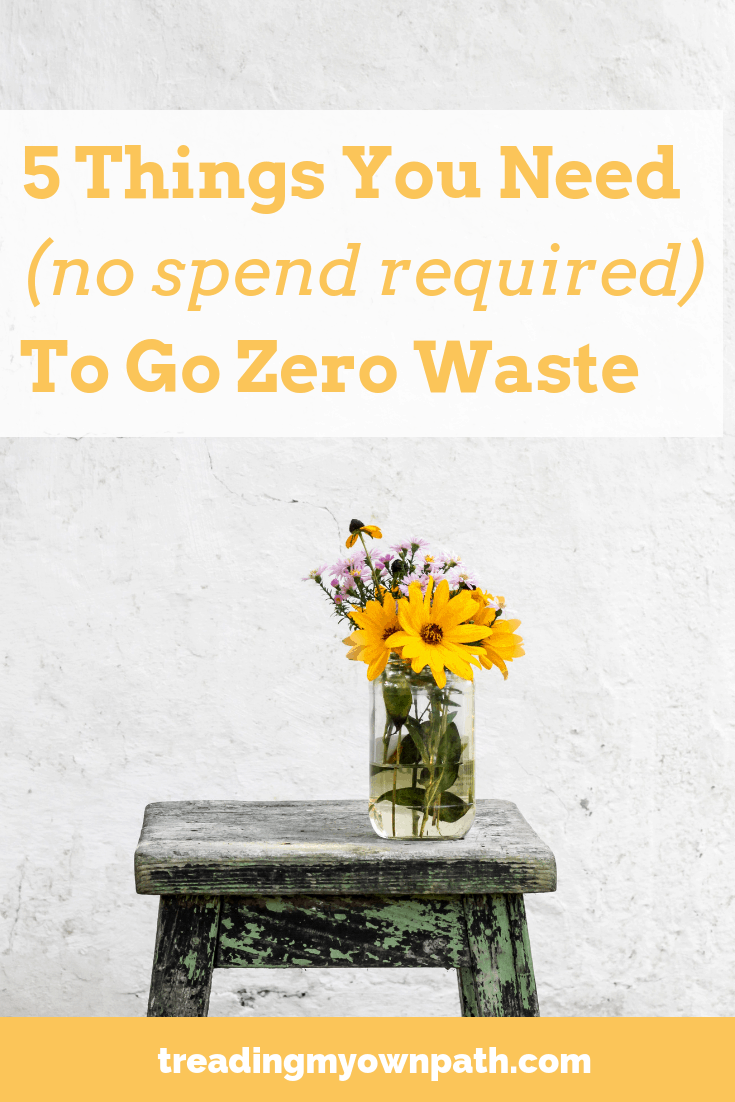
1. A Can-Do Attitude
If we want to achieve something, we have to believe it is possible. That doesn’t mean we have to think in absolutes. Let’s be realistic about what is possible, for us, and build on that.
Too many people trip up thinking oh, I could never be 100% zero waste, or I could never do all my shopping at the bulk store, it is too expensive. But there’s no rule that says you have to do that. Not being able to do everything is no reason not to do what we can.
If 100% zero waste or plastic-free isn’t for you (and let’s be honest, in today’s economy, with today’s systems, it is impossible to achieve 100%), decide what is for you.
Choose a different percentage, or even better, choose how much you want to improve by compared to where you are now. Maybe you’d like to reduce your bin by half, or maybe you’d like to make one swap every month until Christmas.
If the bulk store is too expensive, commit to doing 10% of your shopping there, or just buying your herbs and spices there.
Too often people assume it has to be all-or-nothing, and if they can’t do it all it doesn’t count and they shouldn’t bother. Wrong. It all counts. Every single action counts.
What you need is a goal that is achievable and realistic for you, one you can feel good about and know is within your grasp. Ideally one that involves no comparison with what anyone else is doing. That will keep you upbeat as you work on making change.
Let’s not forget that there will be slip-ups, mistakes and moments where it all gets a bit too hard. See them for what they are, part of the learning process, and know that despite any backwards steps, you can do this.

2. A Focus on Solutions
There are a lot of things about the world that could be a whole lot better. It can be a little overwhelming to think about it all. So don’t.
We can recognise that there are a huge amount of things that we care about and want to see changed – climate change, peak oil, farming practices, the food system, plastic pollution, over-use of plastic in manufacturing, animal welfare, deforestation – whatever the things that are closest to to your heart.
This is our sphere of concern: the stuff we care about.
From there, we can think about what we are in control of, or can influence. We might not be able to influence the political decisions made by leaders in foreign countries, but we still have influence on others and the world around us.
We can write letters, or join campaigns. We can support local events, or create our own. We can pick up litter, or choose to boycott unethical companies. We can refuse single-use plastic, and we can buy second-hand.
This is our sphere of influence: the things that we can do.
Try to spend less time worrying about the things that you cannot change, and more time doing the things you can to make the world better.
For specific problems, tackle them one at a time, and find a solution. Ask the internet. Talk to friends or colleagues. Try different things. Someone, somewhere, will probably have a solution to the problem staring you in the face.
And if you really can’t find a solution, put it aside, for now. It is in the sphere of concern, but not our sphere of influence (yet). Move onto the next concern, and look for a solution for that.
3. Some Creativity
If you don’t think you’re creative, don’t panic. You don’t need to be – you just need to find others who are. People are always coming up with great solutions and hacks for different problems, and the internet means they are freely shared.
Saying that, creative doesn’t necessarily mean artistic. I consider myself to be creative in the kitchen – but you won’t find me making cute cupcakes or icing cakes worthy of best-in-show rosettes. No, my creativity is based around my ability to make a meal out of almost anything. I am a dab hand at using up fridge dregs! Not Pinterest-worthy, but tackling food waste gets my creative juices flowing.
Maybe you know how to sew. Maybe your mending skills are extraordinary. Maybe you know how to fix stuff. Maybe you know how to make stuff. Maybe you can find a use for anything. Maybe you’re full of upcycling ideas.
Whatever your creative outlet is, use it in your journey to zero waste. Share it, if you can. And use the creative outlets of others to help you with the things you’re less good at.
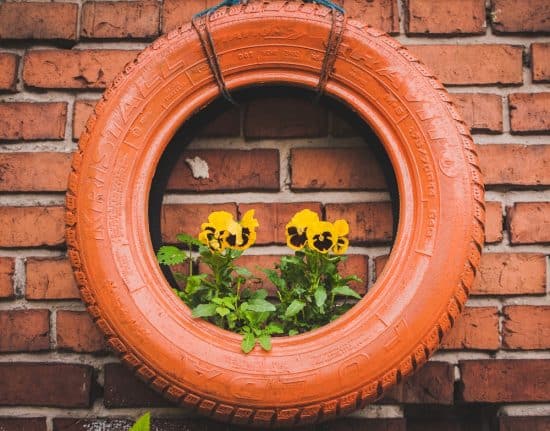
4. Healthy Scepticism
I believe it’s useful to question things, particularly claims about eco-friendly credentials that a business or product might have, or those headline-grabbing claims that companies often spout. Read the fine print. Ask questions. Become your own investigator.
There is a lot of greenwashing and misleading information out there. I was someone who used to take these claims at face value. If it said “eco-friendly” on the packaging, that was good enough for me! But of course, claims like this aren’t regulated. We need to do our homework.
Any business can decide its product is eco-friendly and stamp it on the front of the box. Any business can make a media statement promising to ban plastic/single-use items/non-recyclable packaging by several years into the future. But claims and headlines like this are meaningless without explaining how, or offering an an actionable plan to back it up.
When you see a headline or product that sounds too good to be true, it usually is. Probe. Look deeper. Ask questions. Most companies with genuine ethical credentials will be able to answer your questions and address your concerns, or will tell you they don’t know and offer to find out. Anyone who ignores your request or is elusive or cagey: remain sceptical.
5. Community Spirit
We’re in this together! We really are. The reason that zero waste and plastic-free living is referred to as a movement is because there are lots of people joining in, all working together towards a common goal. We’re sharing resources and sharing ideas, and learning from one another.
Particularly if you don’t have much support from friends, family and colleagues, finding like-minded people elsewhere is crucial.
Be part of the community. This can be online, via social media (Facebook groups are good resource for creating online community spirit) and blogs. Share your thoughts and insights, and ask questions. Post ideas and success stories. Support those who are struggling, and celebrate those who are doing good things.
Help make our community positive, welcoming and supportive for others.
This can be offline, too. Join a local group or attend a community event (from beach clean-ups to movie screenings to DIY beeswax wrap making, I guarantee there will be something out there). If you’re feeling brave, offer to run an event at your local library – it will be a good way to meet like-minded people.
At the very least, join a Buy Nothing group or local neighbourhood network. Whilst the platforms are online, the members are the people who live where you live. It’s a great way to start to get to know your neighbours better and share stuff.

If you think zero waste is too hard, it will be too hard. But if you think that reducing your trash or limiting your plastic use is within your grasp, you’re already on your way.
Look at the areas in your life where you can make tiny changes and improvements, and find ways that work for you. Whenever you’re stuck, reach out – it’s likely someone will have a creative solution for your problem. And if you come up with an amazing solution yourself – tell everyone who will listen!
Zero waste and plastic-free living is a lifestyle and a journey. There’s not some end point that you get to and you’re done. It’s ongoing, and every day brings new challenges. So forget about absolutes or perfection. Just do what you can.
Now I’d love to hear from you! Do you agree with this list? Any other attributes you think are helpful when trying to go zero waste and plastic-free? Anything you struggle with? Anything else you’d like to add? Please share your thoughts in the comments below!



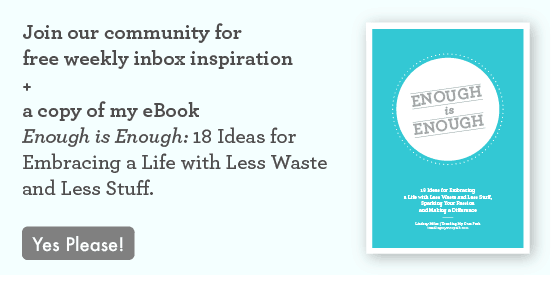

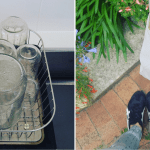
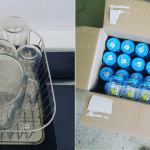

Really impressed with this post
Thanks Eleanor :)
Very interesting. Slowly trickling into my 21st century consumerist mind. Sticking with my motto of ‘keep it simple’ I have invested in some new jars for my yoghurt maker. Five out of seven of the previous jars had got broken and I had been buying yoghurt. I decided that this *was* something worth investing in, in order to be able to make my own and in the way that I am familiar with. I’m on a no spend month so I had to think very carefully, but decided it was worth doing. And I’ve begun washing and keeping jars for reuse and making my own gluten free vegan bread (Veganuary is harder when you’re gluten free). Small steps, but it’s one step at a time, I really believe that. Also, when you’ve got an illness and you’re homeschooling a recalcitrant teenager, you’ve got to just do what you can manage!
Some things are definitely worth investing in, Sandy! And that’s exactly it – figuring out what we can manage, and focussing on that. If stuff is too hard, that can sit on the side for now. There’s no point trying to tackle everything, biting off more than we can chew and then giving up on it all.
Homemade bread, mmm delicious!
Like it. Love what you have and use it. It’s a slow change over time that ensures success, I like your comment to try to reduce waste by half.
We had use up what’s in the freezer Moroccan stew yesterday . Luckily I can cook and sew but these are skills I have worked on over time.
I’ve given up on mascara and nail varnish because I want to still buy some beauty products but I don’t need so many.
We are still using Tupperware containers that we were given as wedding gifts in 1993.
I have been enjoying looking more critically at what is on offer locally to reduce my single use plastics. No man in a van dashing to my door.
Thanks for the interesting post.
Thanks Heather. Cooking and sewing are definitely two skills that make zero waste living so much easier. I’m pretty good at cooking and always keen to experiment – and yes, I have worked on this over time. When I left home for uni I literally didn’t know how to make pasta! (And I don’t mean from-scratch pasta, I mean boiling the packet stuff!) So it has come over the years. Sewing is where I sill need and want to work on. A challenge for 2019, I think.
Thanks for sharing how you’re making it work for you!
This post is exactly the peptalk I needed today – thanks!!
I’ve expanded plastic free month to all months starting with J, and my focus for January is tackling the bathroom. Switching to bar shampoos etc is easy, but I seem to get stuck on odd things – like: How do I clean the toilet without that plastic bottle with bent neck?
I guess it’s time to celebrate the changed I have made, and accept that some solutions will pop up along the way :-)
Lea – I refilled an Earth Choice loo cleaner with my own cleanser made with vinegar and dishwashing detergent….
On cleaning toilet without plastic bottle with bent neck, sprinkle baking soda all over inside of bowl, pour in some white vinegar, watch it foam up, and swish all around with brush. That usually works pretty well.
This is a long term solution but when we replaced our toilet last year (the old was actually broken) we got a rimless water efficient flush toilet. More expensive but as the main toilet cleaner in the house I felt ease of cleaning (with baking soda and vinegar) was a key deciding factor
Woah a rimless toilet is a thing? I think as the main toilet cleaner you made the right decision ;)
Thank you Debbie :)
Hi Lea and my pleasure! Hmm, if you aren’t keen on getting in there and giving a scrub by hand, could you repurpose one of those bendy bottles that you already have and refill with a bulk option, DIY option or even a more eco friendly packaged option? I reused my old cleaning bottles for a while when I went plastic-free – of course in the end they break, but it buys you some time to think of more solutions!
I love this! Fishing around in my bag for a reusable straw just isn’t going to happen, nor do I chose to do without a straw for drinking on road trips – but I pick up litter and bring my own coffee cup and use cloth pads – I’m doing MY best, and I improve where I can, when I can.
Thanks for sharing, Alice. There will always be things that are in the too-hard basket, and as long as we don’t use it as an excuse not to do anything, we are headed in the right direction :)
Thank you Lindsay for encouraging us in every way . I live in Maine in the USA and always look forward to reading what you have to say.
Thank you Siri for your lovely comment :)
Beautifully written. Makes so much sense!
Thank you for your inspiration.
Thank you Lindsay for this encouraging post, it’s just the little push I needed to be happy with the little changes I can make, rather than being overwhelmed with the big picture.
Excellent tips to start the journey to zero waste
Thanks Monika! I try my best to be gently encouraging rather than full-speed-ahead – as tempting as the latter can be sometimes ;) Better to go slow and learn from the journey, I think.
A very articulate and considered article. I agree that the whole issue around reducing our waste has to be linked to our consumerism and that we don’t need to buy more stuff to make it work.
I have been making swaps all last year. As I have been running out of something, I have been looking for alternatives. I haven’t used cling wrap all year & only one piece of baking foil. I’ve made kitchen wipes out of old T-shirts that would have been consigned to the bin, instead of using paper towel. So many times when I have asked a question online, I have been told where to buy something instead of how I could make it out of what I have at hand. Food packaging is the hardest thing to combat. For health reasons, going into the city markets for fruit & veg isn’t an option right now, but will be in the future. That doesn’t stop me from doing as much as I can in as many other aspects of life. If I don’t have my reusable coffee mug with me, I go without.
I am not perfect, it’s not 100% but you are so right, it’s about the best % you can achieve and keep working on increasing it.
Thank you for he time and energy you put into this blog ❤️
Hi Sarah, thank you so much for your lovely comment and for sharing your journey so far. Being able to make things and repurpose them is great, so round of applause. It can be so tempting to buy things. Of course, sometimes it is necessary, but we can weigh up the options first and really consider our choices.And yes, better to do some things than nothing at all! Keep up the great work :)
Love this post! I try to share with others what I’m doing rather than telling them what to do, and even so, quite often they respond with: oh I could never do that (insert any reason here)… I try to be zero waste/ plastic free because I don’t want to be part of the problem and I think it’s well worth a few inconveniences! In fact, I have found it’s making my life easier, less stressful, and more fun!
Thank you for all the great ideas. And for writing this post which I can share with people with “can’t do” attitudes. :)
Great article, loved the way you wrote about our spheres of concern & influence. Will share this on Facebook,
Kind wishes
Vajracaksu